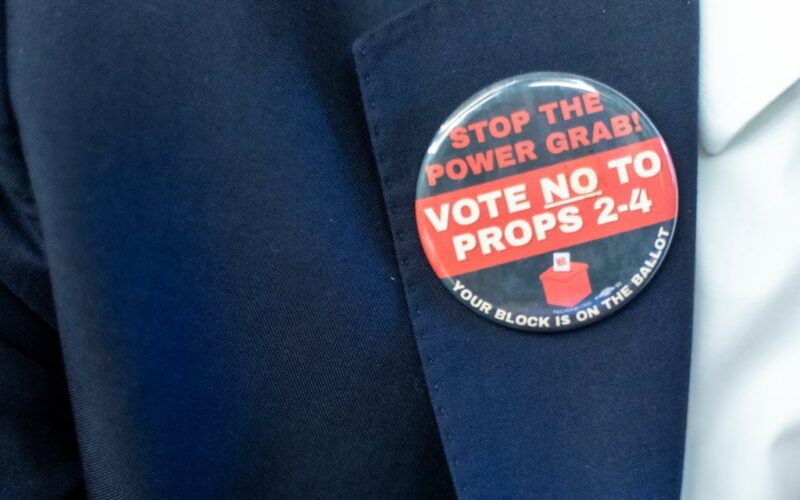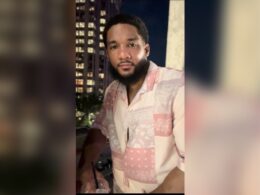In New York City’s election, voters will encounter ballot Proposals 2, 3, and 4 that claim to create and speed up housing development.
These proposals were created by Mayor Adams to block ballot access for other proposals and seek revenge against a City Council that stood up to him. They mislead with language hiding what they really do and inaccurate terms like “fast-track” that are intended to sway voters’ decisions, but don’t transparently describe their changes to the city’s constitution.
Voters should be cautious about this deceptive language and understand what exactly these proposals would change. They would impact the ability to secure truly affordable housing and investments in neighborhood parks, schools, transit, and other essentials.
Ballot Proposals 2 and 3 eliminate the only vote of local communities’ democratically elected representatives in land use decisions, shifting power to unelected mayoral appointees. Proposal 4 creates a process to veto the Council’s final decisions on certain development proposals, not just if they are rejected, but also if they’re changed to be more responsive to local needs.
Proponents have sought to blame the City Council for the housing crisis, but this is dishonest. Since 2022, the Council has approved more than 94% of housing proposals requiring its vote, allowing more than 140,000 homes to be created, while securing more than $8 billion in new funding to make housing more affordable.
This Council has been the most pro-housing in generations, largely because it’s the most diverse in city history. Most members represent New Yorkers in greatest need of affordable homes and most impacted by the housing crisis, and increasingly have curbed the ability of any one member to block needed housing.
The Council’s power is not to block housing, as some have claimed — it is to increase the commitment of public goods from developers and the city. Through negotiation, we increase the affordability of housing, ensure family-sized apartments rather than just studios, and secure neighborhood investments. Our approval of the City of Yes and several neighborhood rezonings, including two last week, reflects this.
Black, Latino, and Asian communities in our city fought for decades to attain the equitable political representation within the City Council that exists today. Before major court decisions that facilitated this and the establishment of the existing democratic land use process, it was these communities that suffered the most from displacement and disinvestment due to lacking power in decisions.
These misleading ballot proposals ignore this history of racial injustice and how they can undermine the ability to advance progress.
We need to ensure affordability reaches all New Yorkers, not just some. The power of communities — not developers — is what advances this equity. Weakening this democratic power undermines our success.
Land use and zoning approvals alone don’t lead to the creation of new homes or affordability. They can help promote housing supply, which is why the Council has approved record changes, but the source of delays in development is not due to the Council.
It is mayoral agencies’ reviews that take more than 700 of the approximately 900 days cited as the length of review for housing proposals. The ballot proposals cannot fast-track housing, because they do nothing to address these. Instead, they almost entirely focus on the part of the process involving the Council, which legally cannot be more than 65 days.
Even after projects receive land use approval, they frequently get stuck at city agencies for months due to financing and approval delays. A 2024 report found a 25% increase in the time it takes to complete projects that receive funding from the city’s loan programs.
Despite these long delays in the housing approval processes controlled by the mayor, the mayor’s ballot proposals only target the Council’s role, and by extension, the community’s power, to shape new housing, its affordability, and investments in neighborhoods.
The current process isn’t perfect, and we know some districts historically fail to contribute their fair share. We must advance accountability, but the solution is not to broadly shift democratic power from communities and their representatives to developers and the mayor.
New Yorkers deserve housing that is affordable and neighborhood investments that provide equity, opportunity, and stronger communities.
Without power to deepen housing affordability and demand equitable investments, racially diverse and working-class New Yorkers will be left behind and the housing crisis will not be solved.
New Yorkers need real solutions on housing that recognize historical injustices and racial inequities. Mayor Adams’ misleading ballot proposals fall short by broadly taking away communities’ power to demand what they deserve.
Adams is the speaker of the New York City Council and represents District 28 in Southeast Queens.








